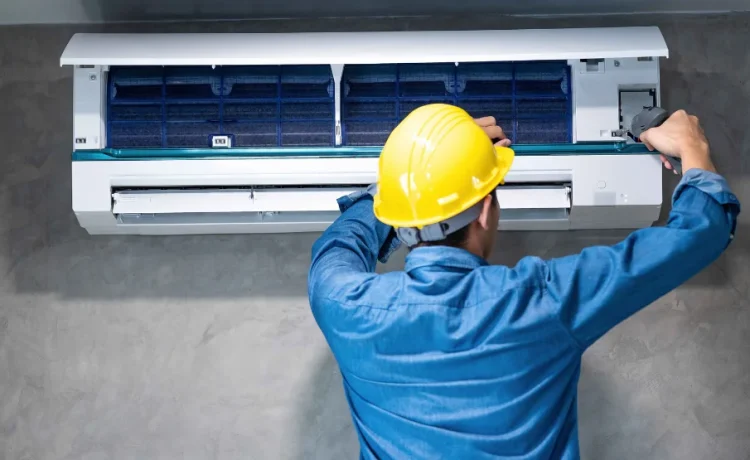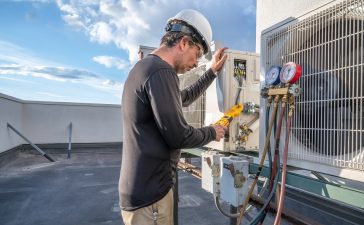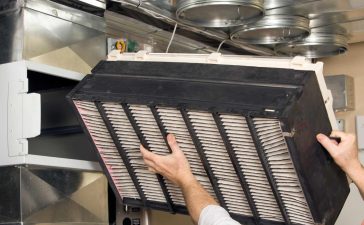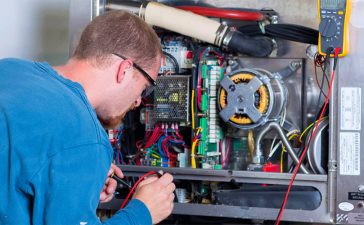In today’s fast-paced world, where comfort and efficiency are paramount, the role of your HVAC system in your home or business goes beyond simply heating or cooling the space. The modern HVAC system is an integral part of maintaining an optimal indoor environment, where air quality plays a critical role. While many people understand the basic functions of heating, ventilation, and air conditioning, few fully grasp the importance of integrating air quality management into their HVAC strategy. However, this oversight can lead to various health issues, energy inefficiencies, and a reduction in comfort levels.
In this article, we’ll explore why prioritizing air quality within your HVAC strategy is essential, the benefits it offers, and how you can take actionable steps to ensure that your indoor air is as clean and healthy as possible.
The Interconnection Between HVAC Systems and Air Quality
An HVAC system is designed to provide temperature control and ventilation throughout a building. It circulates air to regulate the indoor climate, ensuring that spaces are kept at comfortable temperatures. However, air quality is not solely determined by the system’s ability to regulate temperature—it also depends on how the system handles the air that it circulates.
Indoor air quality (IAQ) refers to the quality of the air inside a building, influenced by various factors such as pollutants, allergens, and humidity. The HVAC system has a significant influence on IAQ because it controls the airflow and filtration process. Without proper air quality management, contaminants such as dust, mold spores, pollen, pet dander, volatile organic compounds (VOCs), and even harmful gases like carbon monoxide can easily spread throughout the building, causing discomfort and health risks.
Integrating air quality measures into your HVAC strategy ensures that the system doesn’t just heat or cool the air but also purifies and circulates clean, fresh air that contributes to better health, comfort, and energy efficiency.
Why Air Quality Should Be a Priority in Your HVAC Strategy
1. Health and Wellbeing
The air you breathe plays an essential role in your health, and poor air quality can have a profound impact on both short- and long-term health. Indoor air pollution can aggravate respiratory conditions like asthma, allergies, and chronic obstructive pulmonary disease (COPD). Furthermore, contaminants such as mold, pet dander, and dust mites can lead to various health problems, including coughing, sneezing, headaches, eye irritation, and fatigue.
By prioritizing air quality within your HVAC strategy, you ensure that your indoor environment supports optimal health and minimizes exposure to airborne irritants. Installing air purifiers, using high-efficiency particulate air (HEPA) filters, and maintaining your system regularly can significantly reduce the presence of harmful particles in the air.
2. Improved Comfort and Productivity
Air quality directly influences comfort levels, especially in spaces where people spend a lot of time, such as homes and offices. Poor air quality can cause discomfort, leading to stuffy or dry air, unpleasant odors, or humidity issues. This discomfort can affect concentration, mood, and overall productivity, especially in office settings.
Incorporating air quality management into your HVAC system can ensure that your indoor space is pleasant and conducive to activity, whether for work or relaxation. With proper humidity control, air filtration, and temperature regulation, you can create an environment where people feel energized, focused, and comfortable throughout the day.
3. Energy Efficiency and Cost Savings
Many people do not realize that poor air quality can impact the energy efficiency of their HVAC system. When air filters are clogged with dust, pet hair, and other debris, the HVAC system has to work harder to maintain the desired temperature, increasing energy consumption and utility costs. Furthermore, high humidity levels or insufficient ventilation can make the system less efficient, leading to increased wear and tear and more frequent repairs.
Integrating air quality measures into your HVAC strategy can reduce strain on the system. For example, using a high-quality air filter can ensure proper airflow, while controlling humidity levels can reduce the burden on the system to regulate temperature. These steps not only promote energy efficiency but also extend the lifespan of your HVAC system, resulting in long-term cost savings.
4. Odor Control
Lingering odors, such as cooking smells, pet odors, or tobacco smoke, can make a home or office unpleasant. HVAC systems that are not optimized for air quality can recirculate these odors, making them more pervasive. Air purifiers and activated carbon filters can be integrated into the HVAC system to help neutralize odors and keep the air fresh.
By incorporating air filtration systems designed to remove odor-causing molecules, your HVAC strategy can ensure that the indoor environment remains fresh, even in spaces prone to strong smells.
5. Enhancing System Performance and Longevity
An often-overlooked benefit of integrating air quality measures into your HVAC strategy is the effect it has on the overall performance and longevity of your system. When filters are clean and air quality is well-managed, the HVAC system runs more efficiently and experiences less strain. This translates into fewer breakdowns, less frequent repairs, and a more reliable system overall.
Maintaining clean ducts, replacing filters regularly, and using air purifiers can help reduce the burden on your HVAC system, ultimately extending its useful life. Investing in your system’s performance by ensuring good air quality will save you from unexpected repair costs and the premature need for a system replacement.
Practical Steps to Improve Air Quality in Your HVAC Strategy
Now that we’ve established the importance of air quality, here are several practical steps you can take to integrate air quality management into your HVAC strategy.
1. Upgrade Your Air Filters
One of the simplest and most effective ways to improve air quality is by upgrading your HVAC system’s air filter. High-efficiency filters (such as HEPA filters) are designed to trap finer particles, including dust, pollen, mold spores, and pet dander. These filters help improve both air quality and system efficiency. It’s essential to replace filters regularly—at least every 1-3 months, depending on usage.
2. Install Air Purifiers
For enhanced air quality, consider integrating an air purifier into your HVAC system. Air purifiers are designed to remove contaminants and allergens from the air, providing a clean and healthy indoor environment. Some systems combine air purifiers with UV-C light technology, which targets bacteria and viruses, adding another layer of protection against airborne pathogens.
3. Control Humidity Levels
Humidity can have a significant effect on air quality. High humidity encourages the growth of mold, mildew, and dust mites, while low humidity can lead to dry skin, irritated sinuses, and an overall uncomfortable environment. Incorporating humidifiers or dehumidifiers into your HVAC strategy helps regulate humidity levels, promoting a more comfortable and healthier living or working space.
4. Regular HVAC Maintenance
Routine maintenance is essential to ensure that your HVAC system remains in optimal working condition. Regularly check the air filters, inspect the ducts for any debris or leaks, and clean the system’s components. Professional inspections should be conducted at least once a year to ensure your system is running efficiently and your air quality is optimal.
5. Seal and Insulate Your Home
Proper insulation and sealing are integral to improving air quality and energy efficiency. Air leaks around windows, doors, or ducts can allow pollutants to enter your home and reduce HVAC efficiency. Sealing these gaps helps keep the air you breathe clean and helps your HVAC system operate more effectively.
Conclusion: A Healthy Home Begins with Clean Air
Incorporating air quality management into your HVAC strategy is not merely a luxury—it is a necessity for improving the comfort, health, and efficiency of your living or working environment. By prioritizing air filtration, humidity control, and regular maintenance, you can create an atmosphere that is not only more pleasant to live in but also healthier and more cost-efficient.
As we continue to spend more time indoors, the quality of the air we breathe will have a lasting impact on our health and wellbeing. Whether you are a homeowner looking to enhance your living space or a business owner striving to provide a better environment for your employees, integrating air quality into your HVAC strategy will offer substantial benefits. When air quality is treated as an integral part of your HVAC system, the result is a more comfortable, productive, and sustainable environment for all who enter.









